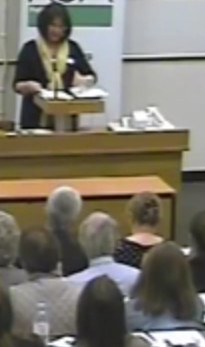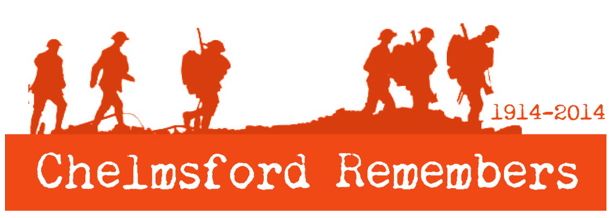
(A year has passed since the 2014 World Autism Day. We suspect that the clarity and depth of knowledge about neuro-diversity still has a continuing development need across all our communities.
We publish below a review article of an event at the University of Hertfordshire, held a year ago. Jenny King FRSA ends the piece with a call for action – an opportunity to repeat and expand the work that was started at this well attended and well received regional event.
If the filmic evidence and the narrative below inspire you to engage and help, do make contact with Jenny and offer support for this important project…Ed.)
A review of an evening forum for local professionals in Health and Education held at the University of Hertfordshire April 2 2014, World Autism Day.
Aims in 2014:
- To raise awareness of the talents and needs of high functioning neuro-diverse young children.
To clarify:
a) the best pathway to early diagnosis and
b) the most appropriate intervention from families and educators to maximise strengths and minimise challenging behaviour.
Objectives one year on in 2015:
- To encourage Fellows to “roll out” similar events across the Country.
This unique Forum hosted by the University of Hertfordshire and the Royal Society of Arts, provided qualified practitioners in Health and Education an opportunity hear first hand information on young, high functioning neuro-diverse children and their traits and behavioural challenges. The aim was to facilitate conversation on the need to recognise the potential in the children’s often exceptional talents, and focus on their needs. The chief of these to try to clarify a pathway to early diagnosis and consequent support.
Two hundred and fifty representatives from health and education were invited: GPs Paediatricians, Health Visitors, Clinical and Educational Psychologists, Occupational Therapists, Headteachers, SENcos – Nursery and Early years Managers, Family Support Workers, Counsellors, HomeStart, and support groups working specificially for Neuro-Diverse children, including members of the Hertfordshire County Council and East and North Hertfordshire NHS Trust.
Two Fellows of the RSA, Jenny King and Sue Hind Woodward, put together this event after sharing a conversation at an RSA East Herts function dinner at Hatfield House about their concerns for the lack of recognition and support for the majority of young, high functioning neuro-diverse children. Those whose extraordinary gifts and talents could ultimately change the world, but whose extreme behavioural challenges prevented their recognition and progress.
Following the best tradition of the origins of the RSA in the coffeehouses in London in the 1700s, Sue and Jenny progressed their discussions at a Costa Coffee shop at a service station on the A1(!), halfway for both, against the clamour of travellers and fruit machines etc. Not quite the same cerebral atmosphere but nonetheless the idea was developed and they parted bent on growing their conversation to reach the people who could make a difference. Sue coined the phrase “Unleashing Potential – Crucial Beginnings” which encapsulated their aims.
Some research prior to the event showed that primarily there seemed to be a lack of knowledge of the traits of neuro-diversity e.g. Autistic Spectrum, ADHD, Dyslexia, Dyspraxia, Bipolar and related difficulties. In particular even when the traits had been identified there was no clear route forwards to diagnosis. Getting help was a frustrating performance for parents trying to demonstrate that their child was challenging for a reason unconnected to their upbringing. Delays were up to two years for a first appointment with an NHS specialist.
Looking into the situation more closely it appeared that some GPs were unfamiliar with the traits of neuro-diversity and did not know where to start with a referral. Health Visitors, possibly with more involvement supporting low-functioning children with behavioural problems, tended to direct parents towards family counselling which implied failure in parental terms. Family Counsellors visited were often equally unsure about further diagnosis for the child. Some schools, already frustrated by the challenging behaviours exhibited by neuro-diverse children, were not always sympathetic and were not well informed about traits, or how to address the difficulties experienced, and the routes to follow for help.
With these discoveries, Sue and Jenny met with Lyn Bhania Senior Tutor in Education who takes a focus on Special Needs at The University of Hertfordshire. Lyn and her colleague Lewis Stockwell were invaluable in offering advice and support for the function and facilitating this at the University. Once the evening’s format was established, Jo Massie at the RSA proved invaluable in helping with administration, managing Eventbrite for ticketing etc.
Contacts were made and eminent Speakers invited on the topic, and a panel of experts to take Q & A. The University helped with their contact lists and specially designed invitations went by snail mail and email across the county. It was decided not to include parents of neuro-diverse children as owing to their frustrations and difficulties this could have brought controversy to a proceeding aimed at bridge building. Thus the event was strictly for professionals. However two of the main Speakers each had an autistic child, so parents were represented. Jenny King FRSA (a retired Headteacher with a specific interest in neuro-diversity) introduced the event with its aims and objectives.
This was followed by the Keynote Speaker, Dr. Simon Williams, PhD, FRSPH a former Research Fellow at Cambridge University, current Research Associate Feinberg School of Medicine, and a Fellow of The Royal Society of Public Health. His focus: Public Mental Health Policy and the Effectiveness of Early Diagnosis.
Dr. Williams travelled from the US to become the Keynote Speaker. He opened his talk by stating his wish to discuss a proposal for the introduction of school-based universal screening, for the early identification of risk of emotional, behavioural and mental health problems in children and adolescents. He would also discuss some evaluation research of a school-based counselling intervention, which could be a model for what post-screening targeted intervention would look like.
Dr. Williams went on to add that “in the long term, the spirit of ‘neuro-diversity’ urges us to reconfigure social and cultural institutions and customs such that neuro-diverse conditions are seen as normal variations in the human condition. To put it simply, the spirit of neuro-diversity urges that it is Society and not the individual that has, or causes, the ‘problem’.
Changing social and cultural perceptions and assumptions takes time. In the short term it is prudent to look at ways of improving current diagnostic and intervention processes. Doing so can reduce diagnostic delays and disparities and ensure that more children with ASD or ADHD for example, can access the support from which they could benefit. “
The content of Dr. Williams’ speech can be found on YouTube. Link given below. He covers:
- Pre School Screening for ASD,
- Universal emotional and behavioural mental health screening
- School based Mental Health Intervention
- Criticisms re: labelling and stigma, harmful false positives, opposition from parents, overburdening of health and educational services
- An evaluation of school based mental health intervention
![]() See the original YouTube post here…
See the original YouTube post here…
In conclusion, Dr. Williams explained that because no matter how effective the intervention is once the children are in the system, the problem is that so long as it relies on referrals it is likely that a substantial proportion of children with emotional and behavioural problems, particularly those with internalizing problems, will fail to be identified in the first place.
The second Speaker was Tom Purser of the National Autistic Society, who is their Policy and Participation Officer and also the parent of an Autistic child.
His subject was “The Expert Parent” in which he spoke of the difficulties that beset the parent and gave an overview of Autism in general.
To hear the content of this interesting and informative speech, demonstrating Tom Purser’s in depth knowledge of this topic, follow the Youtube link:
![]() See the original YouTube post here…
See the original YouTube post here…
The third and final Speaker was Melanie Peeke, MA Oxon, who works with ADD-vance as a Specialist Trainer delivering workshops/courses for parents and teachers. Also Founder of “Spectrum Girls” social group for girls with High Functioning Autism. Melanie Peeke is the parent of a high functioning autistic daughter. Her talk was on The Empathetic Teacher.
Many of those listening to this talk, especially from the educational arena, found Melanie Peeke’s insights on appropriate school intervention strategies for young, high functioning neurodiverse children, helpful, positive, and relevant.
Following the Speakers was a half hour break for discussion and refreshment in the main Foyer. Groups assembled under “Muster Points” for their professional connection and questions were formed for the Panel in the second half.
The Panel Discussion was chaired by Sue Hind Woodward, stepping into the breach as John Cooper QC FRSA was delayed travelling to the venue.
The Panellists were:
- Dr. Paul Bradley – Consultant Learning Disability Psychiatrist.
- Julia Carmichael, Communication Disorders Team
- Dr. Anna Dillon, Consultant Clinical Psychologist, Challenging Behaviour Psychology Service
- Claire Fitt – SenCo How Wood School
- Ann Griffin – National Autistic Society/ harc
- Lizanne du Plessis – Occupational Therapist, Author, Public Speaker
- Dr. Peter Shilliday – GP . Senior Partner, Spring House Medical Centre WGC
To hear the panel Q&A with the audience, please see below.
![]() See the original YouTube panel session here.
See the original YouTube panel session here.
Now approximately one year on from Unleashing Potential – Crucial Beginnings, the question is “What has been achieved”. Following the event the RSA launched a Survey Monkey from which many helpful comments were gleaned. On the whole the audience felt that questions pre-formed and directed at the Panel would have been useful. The interval mid-way had not been used by the audience to form these questions so perhaps there is a lesson learned here. Workshopping was suggested in any follow up event and this is a possibility for the future.
However on the positives, members of the audience felt they left better informed and with some determination to progress discussions in their own field towards creating better understanding for neuro-diverse young, high functioning children. There is some evidence that this is happening.
A call to action:
A year on from the function, Sue Hind Woodward and Jenny King feel that a second event in East Herts might be worth exploring.
However the purpose of this article is to ask whether you, as a Fellow, might be interested in continuing the conversation in your area? In East Herts the ball has started rolling, but there is no reason why events such as Unleashing Potential – Crucial Beginnings, cannot be “rolled out” across the country.
![]() If you might be one of those to take up the baton – please don’t hesitate to contact Jenny King – jenniferkate.king@gmail.com who will supply all the details you might need to set up a similar event.
If you might be one of those to take up the baton – please don’t hesitate to contact Jenny King – jenniferkate.king@gmail.com who will supply all the details you might need to set up a similar event.
Jennifer King FRSA
Sue Hind Woodward FRSA


